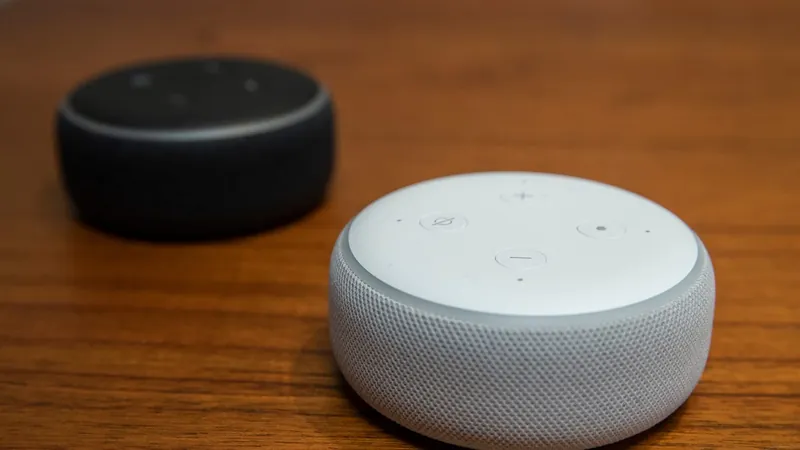
Amazon to Eliminate Key Echo Privacy Feature, Raising Concerns Among Users
2025-03-19
Author: Jia
In a surprising move, Amazon has announced plans to remove a privacy setting from its Echo devices that prevents users' voice requests from being sent to the cloud. Starting March 28, the opt-in feature known as “Do Not Send Voice Recordings” will be discontinued, according to a statement made to USA TODAY.
The current setting allows users to stop their audio interactions with Alexa from being stored on Amazon's servers. However, the tech giant will be replacing it with the “Don’t Save Recordings” option, which automatically deletes voice interactions but first processes them through Amazon's cloud. This means that all voice requests, regardless of the settings, will still be sent to Amazon's secure cloud infrastructure.
Amazon has defended its decision, emphasizing that user privacy remains a top priority. An Amazon spokesperson stated, “The Alexa experience is designed to protect our customers’ privacy and keep their data secure, and that’s not changing. We’re focusing on the privacy tools and controls that our customers use most and work well with generative AI experiences.”
This change will also impact the voice ID feature, which allows Alexa to recognize individual users by their voice. Users who opt for the “Don’t Save Recordings” setting will lose access to this feature. For those who want to maintain voice ID while still ensuring their recordings are deleted, Amazon suggests manually deleting recordings on a periodic basis.
Recent data indicates that fewer than 0.03% of Echo users utilized the “Do Not Send Voice Recordings” option, which was primarily available to U.S. customers with English settings on specific Echo devices like the Echo Dot (4th Gen), Echo Show 10, and Echo Show 15.
The backlash from users has been noticeable, with many taking to social media platforms like Reddit and Facebook to express their frustrations. Some users are questioning the motivations behind the removal of the privacy feature, wondering if it is merely a ploy to aid the company's AI development at the expense of customer privacy. Comments ranged from disbelief over the decision to serious considerations about abandoning the Echo altogether.
Despite these concerns, Amazon continues to assure users that sounds are only processed in relation to wake words or during manual activations. Interestingly, while voice data is processed, the company has clarified that it does not engage in processing visual data when using camera features on compatible Echo devices.
As Amazon moves ahead with these changes, many will be closely monitoring the company's efforts to balance innovation with user trust. It's a pivotal moment for Echo owners who value their privacy and the security of their personal data.






 Brasil (PT)
Brasil (PT)
 Canada (EN)
Canada (EN)
 Chile (ES)
Chile (ES)
 Česko (CS)
Česko (CS)
 대한민국 (KO)
대한민국 (KO)
 España (ES)
España (ES)
 France (FR)
France (FR)
 Hong Kong (EN)
Hong Kong (EN)
 Italia (IT)
Italia (IT)
 日本 (JA)
日本 (JA)
 Magyarország (HU)
Magyarország (HU)
 Norge (NO)
Norge (NO)
 Polska (PL)
Polska (PL)
 Schweiz (DE)
Schweiz (DE)
 Singapore (EN)
Singapore (EN)
 Sverige (SV)
Sverige (SV)
 Suomi (FI)
Suomi (FI)
 Türkiye (TR)
Türkiye (TR)
 الإمارات العربية المتحدة (AR)
الإمارات العربية المتحدة (AR)